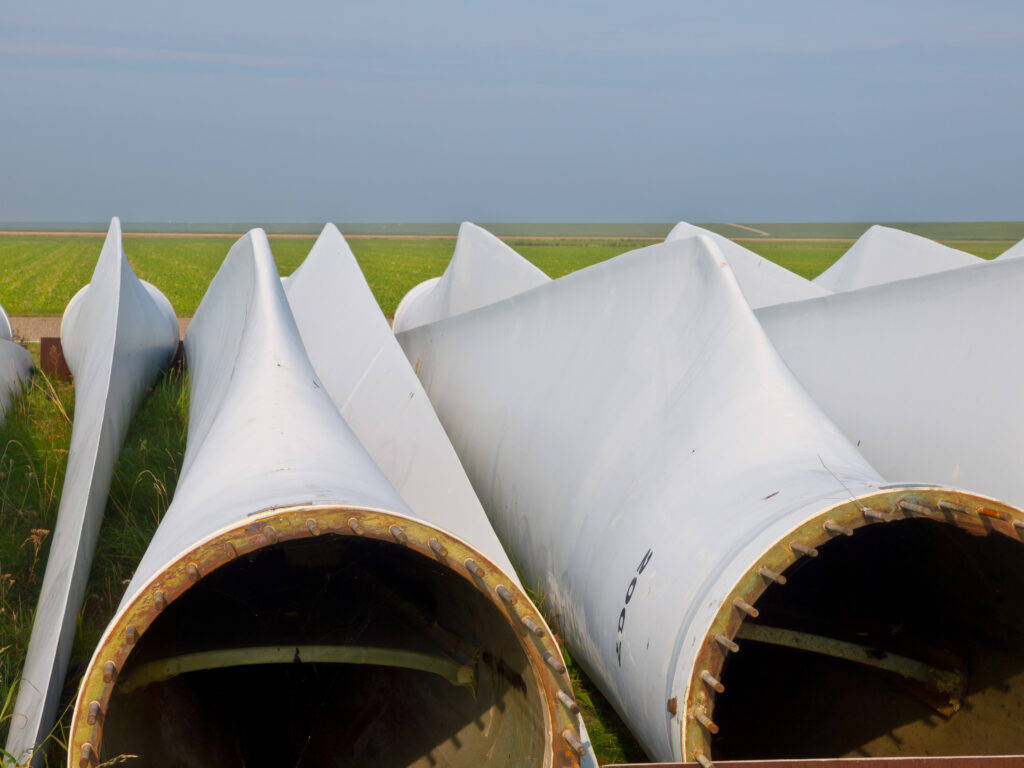Following a trial at Enva’s recycling facility in Ayrshire, the company is able to roll out the service which will see decommissioned turbine blades cut down into three 50 metre lengths prior to them being delivered using specialist equipment.
Once on site, the blades are crushed and shredded, where recyclable materials such as steel are separated and recycled. Any residual material is then used as a “replacement for traditional fossil fuels” at energy from waste plants which manufacture cement.
Around 85 to 90% of a wind turbine’s total mass can be recycled, according to Enva.
Benefits
Michelle Scott, Enva’s operations director, said: “Enva is committed to bringing at least one new recycling process to market every year and the opening of our wind turbine blade recycling facility is another tangible example of this innovation and investment.
“The increased use of alternative energy sources will result in new waste streams which will each require managing in a way that enables us to unlock their circular economy and commercial value. We look forward to continuing to work with the wind sector and other energy companies to help them realise these benefits.”
We look forward to continuing to work with the wind sector
- Michelle Scott, Enva
Turbines
Statistics from the National Grid show that 26.8% of the UK’s electricity supply was sourced from wind in 2022, with more than 11,000 wind turbines installed. This ranks the UK sixth in the world.
Enva has also estimated that around 14,000 wind turbine blades will be decommissioned across Europe by 2023, with a landfill ban being enforced in Europe in 2025.
While various technologies exist that can be used to recycle blades – these solutions are yet to be widely available and cost competitive.
EPR
Early this year, the government was urged to introduce an extended producer responsibility (EPR) scheme for the renewable energy sector (see letsrecycle.com story).
The report was produced by circular economy consultancy firm Gate C and commissioned by Green Purposes Company (GPC). The GPC says it “has one primary function: to protect the green purposes of the Green Investment Group”.
The renewable energy sector was also encouraged to move quicker in its transition towards a circular economy to avoid becoming “complicit with greenwashing”.












Subscribe for free